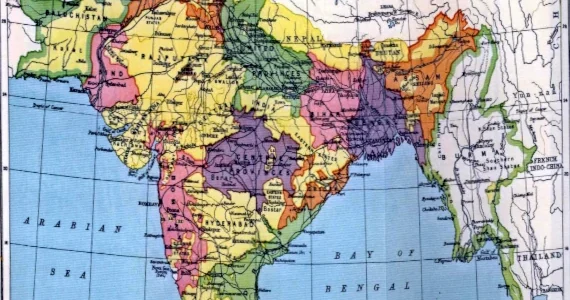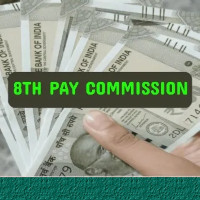Copyrights Registration
Copyright is a form of intellectual property protection like trademark and patents. A copyright is a legal right given by the law to creators of literary, dramatic, musical and artistic works and producers of cinematograph films and sound recordings. Copyright give the owner of the work certain safeguard to ensure the intellectual work is protected and creativity is rewarded. Copyright includes a bundle of right like the rights of reproduction, communication to the public, adaptation and translation of the work.
In India, Copyrights are registered under The Copyright Act, 1957. The Copyright Act, 1957 protects original literary, dramatic, musical and artistic works and cinematograph films and sound recordings from unauthorized uses. However, ideas, procedures, methods of operation or mathematical concepts cannot be copyrighted. Copyright is a right given by the law to creators of literary, dramatic, musical and artistic works and producers of cinematograph films and sound recordings. In fact, it is a bundle of rights including, inter alia, rights of reproduction, communication to the public, adaptation and translation of the work. There could be slight variations in the composition of the rights depending on the work.
Copyright Registration Process
Step 1: Copyright Registration
You can apply for your trademark registration in 5 to 7 days.
Step 2: Application Preparation
Our Copyright Expert will prepare the copyright application. We will prepare your application within 2 – 3 working days based on the information provided.
Step 3: Copyright Filing
Once, the copyright application is prepared and signed by you, we can file it with the Copyright Registrar electronically or manually.
Step 4: Copyright Registration
Once the copyright application is filed with the Registrar, the Government processing will start. Copyright registration takes anywhere between 2 – 3 months.
Frequently Ask Questions (FAQs)
| S.No. | Query |
|---|---|
| 1 | What works can be copyrighted? |
| Any literary, dramatic, musical and artistic works including cinematograph films and sound recordings can be copyrighted. | |
| 2 | What works CANNOT be copyrighted? |
| Copyright protects the expression and not the idea. Therefore, ideas, procedures, methods of operation or mathematical concepts cannot be copyrighted. | |
| 3 | Do I have to get copyright registration to get copyright protection? |
| No. Copyright protection normally comes into existence as soon as a work is created and without any formality. However, in case there is a dispute with respect to the ownership of a work, then copyright registration would be helpful as it serves as prima facie evidence in the court of law with reference to copyright disputes. | |
| 4 | What rights and protection does copyright registration provide? |
| Copyright registration gives the owner of the copyright – the rights of reproduction, communication o the public, and adaptation and translation of the work. Copyright ensures there are safeguards for the rights of authors over their creations. | |
| 5 | Who can apply for copyright registration? |
| Any person claiming to be the owner of the work to be copyrighted can apply for copyright registration. The person can be an individual, company, NGO, etc., | |
| 6 | What are the documents required for copyright registration? |
| A copy of the work to be registered along with the address and identity proof of the trademark owner is required. In case of Company, the name of the Company along with its Certificate of Incorporation and Address proof is required. | |
| 7 | How long will it take to obtain trademark registration? |
| Copyright registration application can be filed with the Copyright Registrar in a matter of days. However, it will typically take 2 to 4 months for the Copyright Registrar to complete their formalities and provide Copyright Registration for the work. | |
| 8 | How long is the copyright registration valid for? |
| Copyright protection typically lasts for 60 years. In the case of original literary, dramatic, musical and artistic works the 60-year period is counted from the year following the death of the author. In the case of cinematograph films, sound recordings, photographs, posthumous publications, anonymous and pseudonymous publications, works of government and works of international organizations, the 60-year period is counted from the date of publication. | |
| 9 | How can a copyright registered work be protected? |
| Any person who knowingly infringes or abets the infringement of the copyright in any work commits criminal offence under Section 63 of the Copyright Act. The minimum punishment for infringement of copyright is imprisonment for six months with the minimum fine of Rs. 50,000/-. In the case of a second and subsequent conviction the minimum punishment is imprisonment for one year and fine of Rs. one lakh. | |
| 10 | Can I sell or transfer a copyright registration? |
| A copyright registration is an intellectual property, which can be sold, transferred, gifted, franchised, etc., Copyright registration gives the owner of the work ownership over the work and any person wishing to use the work must obtain the registered copyright owners consent. |
Advantages Of Copyright Registration
Legal Protection:
Copyright registration serves as prima facie evidence in the court of law over ownership of the work. Therefore, copyright registration gives the owner legal protection for his/her work.
Restricts Unauthorized Reproduction:
Copyright registration will establish that you are serious about copyright infringement. This will help impede unauthorized reproduction of the work as it provides the owner with a host of legal remedies.
Creation of Asset:
Copyright registration creates an intellectual property, an intangible asset. Registered copyrights are an intellectual property and the rights can be sold, franchised or commercially contracted.
Branding or Goodwill:
Registered copyright can be used for marketing and creating a sense of goodwill and quality in the minds of your customer. Registered copyright show others that you care about your work.
Global Protection:
Works that are copyrighted in many other countries are accorded similar privileges here in India. Likewise, works copyright registered in India are accorded protection in many foreign countries.
Makes Work Known:
A copyright registration makes work known across the nation and becomes searchable in the copyright registry database. This prevents competitors and others from using your work and puts them on notice.
Key Terms:
- copyright registration
Disclaimer: The information provided here has been compiled from various sources to the best of our knowledge. While every effort has been made to ensure the accuracy of the details, there may be occasional errors or omissions. If you find any discrepancies or incorrect information, kindly inform us so we can make the necessary corrections. Thank you for your understanding and cooperation.





